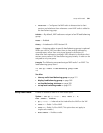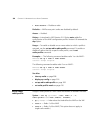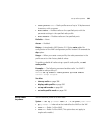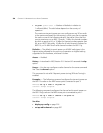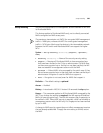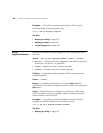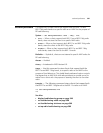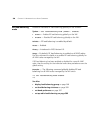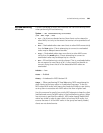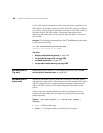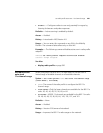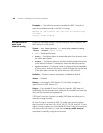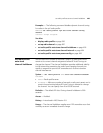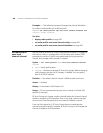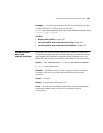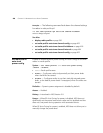
set load-balancing strictness 399
set load-balancing
strictness
Controls the degree to which MSS balances the client load among MAPs
when performing RF load balancing.
Syntax —
set load-balancing strictness
{low |med |high | max}
low — No clients are denied service. New clients can be steered to
other MAPs, but only to the extent that service can be provided to all
clients.
med — Overloaded radios steer new clients to other MAPs more strictly
than the low option. Clients attempting to connect to overloaded
radios may be delayed several seconds.
high — Overloaded radios steer new clients to other MAPs more
strictly than the med option. Clients attempting to connect to
overloaded radios may be delayed up to a minute.
max — RF load balancing is strictly enforced. That is, overloaded radios
do not respond to new clients at all. A client would not be able to
connect during times that all of the detectable MAP radios are
overloaded.
Defaults — Low.
Access — Enabled.
History — Introduced in MSS Version 6.0.
Usage — When performing RF load balancing, MSS may attempt to
steer clients to
less-busy radios in a load-balancing group. To do this,
MSS makes MAP radios with heavy client loads less visible to new clients,
causing them to associate with MAP radios that have a lighter load.
Use this command to specify how strictly MSS attempts to keep the client
load balanced across the MAP radios in the load-balancing group. When
low strictness is specified (the default), MSS makes heavily loaded MAP
radios less visible in order to steer clients to less-busy MAP radios, but
ensures that even if all the MAP radios in the group are heavily loaded,
clients are not denied service.



